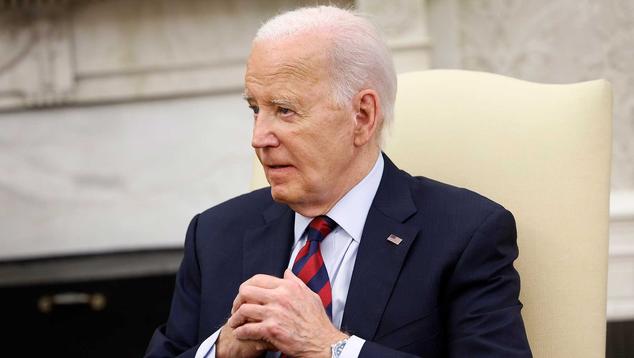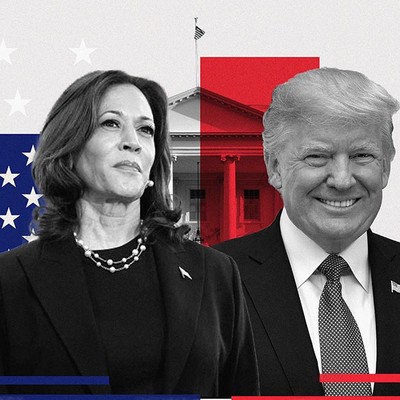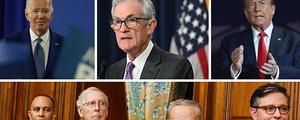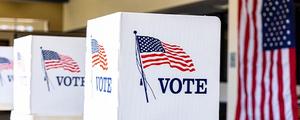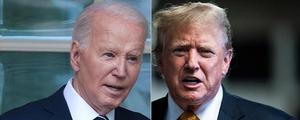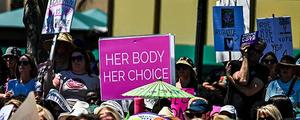WASHINGTON, D.C. -- President Joe Biden’s latest 38% job approval rating remains largely unchanged from recent months and continues to put him well below the 48%+ threshold all reelected incumbents in the modern era have had at the time of the election. His ratings among the three major party groups are also steady, with 83% of Democrats, 33% of independents and 5% of Republicans expressing approval.
Given the extent of political polarization in the U.S. today, there is little chance of Republicans changing their minds about the job Biden is doing. The question hovering over Biden’s reelection chances, then, is whether he can make sufficient gains in approval among his fellow Democrats, and especially independents, during the final four months of the campaign to give him a reasonable chance of winning.
A review of recent incumbent approval ratings finds Biden’s current standing among Democrats is similar to the June readings for the last two Democratic presidents who successfully won reelection. Barack Obama in 2012 and Bill Clinton in 1996 had job approval ratings in the low 80s among Democrats in June of their reelection year. However, Biden is doing significantly worse among independents and Republicans than either Obama or Clinton was at this time.
In fact, Biden’s June job approval rating among independents is in line with the three presidents since 1980 who lost their reelection bid -- Jimmy Carter in 1980 (29%), George H.W. Bush in 1992 (31%) and Donald Trump in 2020 (36%).
In June 2020, shortly after George Floyd’s murder sparked mass racial protests while the nation was also dealing with the COVID-19 pandemic, Trump had a 39% overall job approval rating, similar to Biden’s current rating. However, Trump was doing slightly better among his fellow Republicans (88%) than Biden is doing now among Democrats. Republican incumbents generally have had higher job approval ratings among their co-partisans than Democratic incumbents have.
Presidents’ Partisans Typically Show Increased Job Approval Late in Campaign
Presidents have usually seen an uptick in support among those who identify with the same political party they represent in the final months of a reelection campaign. This is based on an analysis of trends in job approval ratings by party for incumbent presidents between June and October/early November of their reelection year. On average, job approval ratings have improved by five percentage points among the president’s fellow partisans during this time.
All but one president -- George H.W. Bush -- saw at least a modest increase. In Bush’s case, he made significant gains among Republicans between July and September 1992, only to see those fade in October.
For presidents who sustained increases in approval from their own party through the end of the campaign, the gains typically accrued by September, with relatively little movement in the final month of the campaign. This timing suggests that party conventions typically held in August or early September could persuade partisans that the incumbent is doing a good job, as could intensifying campaign activity after Labor Day. The timing also suggests that presidential debates, typically held in late September or October, do not move opinions much.
Incumbents who won reelection tended to have smaller increases in their own-party job approval ratings than those who lost, likely because the winning presidents usually had higher approval ratings in June. Winning candidates’ own-party approval ratings at the end of the campaign ranged from 86% for Clinton to 92% for Ronald Reagan and George W. Bush.
Carter had the largest increase in own-party support, 14 points, though that was from a much lower starting point than any other incumbent. Trump’s seven-point increase in 2020 left him with an average 95% job approval rating among Republicans -- the highest for any president within his own party -- though that was not enough to offset his subpar ratings among independents and minuscule approval among Democrats.
Should the historical pattern hold in 2024, Biden could expect to see his 83% June rating among Democrats rise to 88% by the end of the campaign. September polling, taken after this year’s Democratic National Convention, will be an important indicator of whether Biden is going to receive this typical partisan benefit before Election Day.
With an average of 27% of Americans identifying as Democrats this year, a five-point increase among this group would add between one and two percentage points to Biden’s overall job approval rating. However, such an increase would only propel Biden’s approval rating from the current 38% to 39% or 40% among all U.S. adults, still well below the level historically needed to win if voters primarily cast their ballots for the two major party candidates. That assumes that Biden’s share of the vote essentially matches his approval rating, as has typically been the case for incumbents.
No Clear Historical Pattern for Independents
With a possible increase in Democrats’ approval of Biden unlikely to increase his overall rating much, the need for him to increase his appeal to independents -- the largest bloc of U.S. adults -- is clear. But independents have historically been just as likely to show decreased as increased job approval for incumbent presidents over the final months of the campaign.
Three incumbents -- Clinton, Reagan and Carter -- saw at least minimal declines in approval among independents, while four had at least minimal increases. Across the seven incumbents since 1980, the average change is less than a one-point gain.
Obama was the most successful incumbent in persuading more independents that he was doing a good job, seeing his 42% June approval rating among this group climb to 50% by the end of the campaign.
Using the Obama example as a potential best-case scenario for Biden, the current president might see his overall approval rating climb between three and four percentage points if he also surges eight points among independents, given their average 44% share of the U.S. population in 2024.
However, that increase by itself would still only pull Biden’s job approval rating among independents to the 41% to 42% range. If the expected gain among Democrats also materialized, those two increases would only bring his approval up to 42% to 44%, still below the level that would predict a successful reelection effort.
The more likely scenario based on history, though, is that Biden will not receive an increase in approval among independents.
Also, any job approval gains Biden makes among Democrats or independents could be offset to some degree by losses among Republicans. Historically, presidents’ job approval ratings have fallen an average of four percentage points among supporters of the opposition party between June and October/early November of reelection years. The historical record among the opposition party may not be as relevant now, given the single-digit approval ratings registered by Trump and Biden compared with ratings generally above 10% for prior presidents. As such, the most notable comparison for Biden may be with Trump, whose 4% approval rating among Democrats in October 2020 matched the 4% reading he had in June of that year.
Bottom Line
With four months to go before the election, Biden’s approval rating profile is closer to that of losing than winning incumbents, particularly his subpar ratings among political independents. Moreover, his approval ratings have generally held in the high 30s or low 40s for over two years now, and that may continue, overriding the typical historical patterns.
If the historical patterns do hold this year, Biden’s already high ratings among Democrats can be expected to improve modestly in the coming months. However, independents usually do not show more positive evaluations of presidents between June and the final stretch of the campaign. Even if independents’ assessments of Biden improve to match the record jump seen for Obama in 2012, Biden’s reelection prospects would still look iffy, at best.
Thus, Biden’s odds of winning a second term might rely on a number of possibly unlikely scenarios. The first would be that Biden exceeds the historical norms and has above-average gains in approval among Democrats and independents, putting his approval rating closer to 50% than 40%. A second would be a disproportionately higher turnout among Biden supporters than Trump supporters. A third would be a sizable third-party vote that ends up peeling off more would-be Trump voters than would-be Biden voters. This would also mean Biden’s approval rating could come in below the historical 48% threshold and he still could win, if the two-party vote represents 80% or 90% of the total, as it did in 1980, 1992 and 1996, rather than closer to 100% as in 1984, 2004, 2012 and 2020. Last, millions of Americans who disapprove of Biden’s performance nevertheless could vote in favor of his serving a second term because of concerns they have about Trump.
While those scenarios are unlikely to occur, they may be more likely to happen this year given Trump’s low personal ratings and retrospective evaluations of his presidency, as well as concerns about voting for a candidate convicted of a felony crime by a jury.
Biden’s best opportunity to change his momentum could be this summer’s Democratic National Convention in August, as presidents’ approval ratings have typically shown the most improvement in the weeks after the conventions. While presidential debates generally have not done much to improve incumbents’ approval ratings, the earlier debate schedule this year, including the first one on Thursday, could make them more consequential.
To stay up to date with the latest Gallup News insights and updates, follow us on X @Gallup.
Explore President Biden's approval ratings and compare them with those of past presidents in the Gallup Presidential Job Approval Center.
Learn more about how the Gallup Poll Social Series works.
